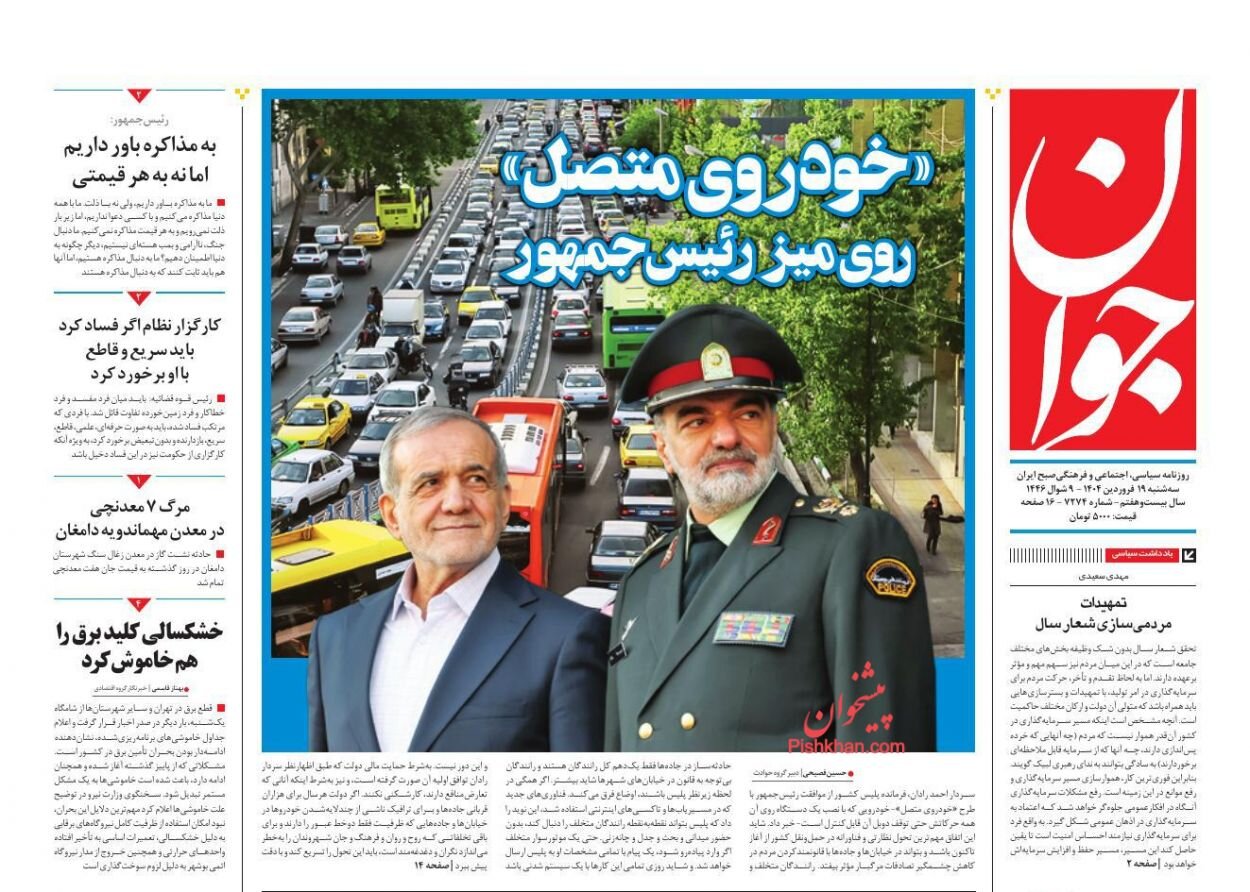The ball is now in America's court

The Javan newspaper ran a story saying dialogue between Iran and the United States has been the hottest topic in media and political circles in recent weeks.
The main point in this regard is distrust in the United States due to its failure to adhere to its commitments and the ambiguity of the outcome of the negotiations, as in past consultations. Now, the logic of negotiations entails that the United States should first take steps to verify the negotiation process in order to reassure the Iranian side. In fact, the ball is now in America's court, and the White House must take the first step within the framework of taking a practical action on previous commitments to build trust with the Iranian side to ensure the continuation of the negotiations. More precisely, Iran’s pursuit of indirect negotiations will be an opportunity to test the U.S., and Iran’s foreign policy should also be smart about monitoring U.S. actions and avoiding any changes in its negotiation strategy. It is clear that the U.S. is using the tools of threats and sanctions to force Iran to make concessions, and if Iran adopts a policy of counter-threats concurrent with negotiations, it will hinder the effectiveness of this tool because Iran will show that unilateral threats cannot weaken or change its position.
Siasat-e-Rooz: Dimensions of a puzzle
Siasat-e-Rooz devoted its editorial to the behavior of the United States and Iran's appropriate response. It wrote: A look at the behavior of the Americans shows that, in addition to playing the tariff game to disrupt the global order and maintain their destructive unilateralism, they have also launched a series of media and propaganda claims to convey the illusion that they are ready for a military option against Iran. The behavior of the Americans indicates that they are under the illusion that, through an atmosphere of negotiation and war, they can bring the Iranians to a “surrender table” like some countries and destroy Iran's military and nuclear capabilities. The main point is that America's slogan of military option is more focused on hidden goals than practical action. Therefore, maintaining military readiness, demonstrating national defense capabilities, and activating diplomacy are essential as a decisive response to any threat. It should be reminded that the United Nations is passive in the face of threats, as there was no reaction from the body to Trump’s military threats against Iran and no meeting was held in the Security Council in this regard.
Ettelaat: Some outlets increase tensions
Ettelaat wrote about the increasing tension between Iran and the United States by some hardline Iranian media outlets: Although efforts to reduce tension and start indirect negotiations are underway, some media outlets are fanning the flames of tension through provocative articles. In an article addressed to the U.S. president, a hardline newspaper pointed out some issues that will only result in escalating tension. The article drew a reaction from Fox News that said experts believe that no negotiations should be held with Iran until it stops threatening to assassinate Trump and other American officials. Such provocative articles are written while the Israeli prime minister's office has announced that Netanyahu will discuss the Iranian threat and the International Criminal Court during his meeting with Trump. It seems that Netanyahu is also not satisfied with a decrease in tension between Iran and the United States and is taking advantage of every opportunity to increase American pressure on Iran.
Arman-e-Melli: The key to Iran's exit from sanctions
The fall of oil prices and the negative effects of Trump's new sanctions and policies have made the situation more difficult for Iran than the past. In these circumstances, Iran must face economic, social, and political challenges that put more pressure on the people and the economy than ever before. Following the intensification of sanctions and economic pressure, the Iranian government has tried to reduce its dependence on oil revenues and seek alternative ways to secure its economic benefits. Iran's efforts to open diplomatic channels and negotiate with other countries are also continuing. These negotiations could be an opportunity to rebuild economic and trade relations with the outside world and reduce the negative effects of sanctions. However, the Iranian government must proceed with this path carefully and intelligently and focus on its interactions with other countries in order to secure national interests in the long term. Given the current situation and economic forecasts, experts believe a comprehensive and up-to-date strategy to protect national interests and strengthen the country's economy is currently considered a requirement.
Leave a Comment